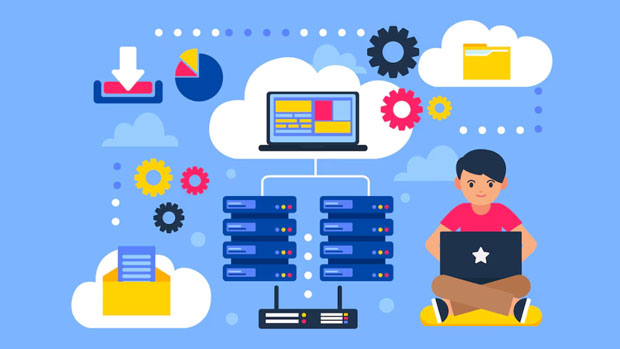In the realm of web scraping, data collection, and anonymous browsing, proxies play a crucial role. Among the various types of proxies available, residential proxies are widely regarded as some of the most reliable. These proxies, sourced from real residential IP addresses, offer a unique advantage in terms of performance in HTTP requests. This article delves into how the best residential proxies perform in HTTP requests, explaining their advantages, operational mechanisms, and impact on overall browsing speed and security. With a particular focus on their role in handling HTTP requests, this article will provide a deep understanding of how they contribute to efficient and secure online activities. What Are Residential Proxies?Residential proxies are IP addresses that are assigned to real residential devices. Unlike data center proxies, which come from servers located in data centers, residential proxies come from real ISPs (Internet Service Providers) and are tied to physical devices like smartphones, laptops, and desktop computers. These proxies act as intermediaries between a user's device and the internet, masking the user's original IP address. Residential proxies provide a high level of anonymity, making them ideal for tasks that require evading detection, such as web scraping, accessing geo-restricted content, or managing multiple social media accounts.Performance of Residential Proxies in HTTP RequestsHTTP requests are fundamental to how browsers communicate with web servers, and proxies play an essential role in ensuring the smooth operation of these requests. Residential proxies have a unique advantage when it comes to handling HTTP requests, especially in comparison to other types of proxies. Here's how they perform:1. Increased AnonymityOne of the primary reasons for using residential proxies in HTTP requests is their ability to increase anonymity. Since these proxies use IP addresses linked to real residential addresses, they are much harder to detect compared to data center proxies. Websites and servers generally trust residential IPs more because they appear to be coming from regular users rather than servers. This increased trust reduces the likelihood of HTTP requests being blocked or flagged as suspicious.2. Bypassing Geo-restrictionsGeo-restricted content is a common barrier encountered when trying to access certain websites or services. Residential proxies excel at bypassing these geo-restrictions in HTTP requests. By using proxies from different geographic locations, users can route their HTTP requests through various regions, making it appear as if they are accessing the content from a location where the service is available. This is particularly useful for activities like streaming, market research, and accessing localized services.3. High Success Rate for Web ScrapingWeb scraping often involves making numerous HTTP requests to collect data from websites. However, websites are increasingly sophisticated in detecting and blocking scraping activities. Residential proxies increase the chances of success by rotating IPs with each HTTP request, making it harder for websites to track and block the requests. This feature is crucial for projects that require gathering large amounts of data without encountering CAPTCHAs or IP bans.4. Reduced Latency and Improved SpeedLatency, or the time it takes for an HTTP request to reach its destination and receive a response, is a critical factor in online activities. Residential proxies are generally faster than other types of proxies, such as data center proxies, because they are spread across various ISPs and are less likely to be overloaded. This can result in faster HTTP request processing times, which is beneficial for tasks like web scraping, where speed is of the essence.5. Scalability and FlexibilityFor large-scale projects that involve sending thousands or even millions of HTTP requests, residential proxies offer scalability and flexibility. With a large pool of IP addresses from various locations, users can distribute their HTTP requests evenly across multiple proxies, ensuring that the system remains efficient and that no single proxy is overwhelmed. This capability is particularly important for businesses that rely on scraping data at scale or accessing services in different regions.6. Security and Fraud PreventionResidential proxies play a crucial role in preventing fraud and ensuring security in HTTP requests. By hiding the user's original IP address and using a proxy ip, residential proxies protect against identity theft and data breaches. Additionally, they help users avoid being tracked by third parties, enhancing privacy when browsing the internet or making online purchases. This security feature is valuable for users who require a high level of confidentiality in their online activities.Benefits of Using Residential Proxies for HTTP Requests1. Enhanced PrivacyPrivacy is one of the top priorities for many internet users, especially when browsing anonymously or collecting sensitive data. Residential proxies provide an extra layer of privacy by masking the user's real IP address. This not only protects the user from potential hackers but also shields them from being monitored by websites, advertisers, or data collection entities.2. Access to Localized ContentAnother significant benefit of residential proxies is the ability to access localized content. Many websites tailor their content based on the user's geographic location, using the IP address to determine this. By using residential proxies, users can simulate browsing from different countries or regions, accessing content that would otherwise be restricted.3. Increased Conversion Rates for Ad CampaignsFor digital marketers, residential proxies can improve the effectiveness of online advertising campaigns. By using proxies to simulate different users from various locations, marketers can test ads, monitor competitors, and optimize campaigns for specific regions. This can lead to improved ad targeting and higher conversion rates.Challenges and Limitations of Residential Proxies in HTTP RequestsDespite their many benefits, residential proxies are not without their challenges. Here are some of the limitations to be aware of:1. CostResidential proxies are generally more expensive than other types of proxies, such as data center proxies. This can make them less accessible for small businesses or individual users with limited budgets. However, the increased reliability and performance often justify the higher cost, especially for businesses that require large-scale data collection or access to geo-restricted content.2. Potential for OveruseWhile residential proxies can handle large volumes of HTTP requests, there is still the potential for overuse. If too many requests are made through a single IP address or too quickly, it can lead to the IP being flagged or blocked. To prevent this, users should rotate their proxies regularly and ensure that they are not overloading any individual proxy.3. Speed VariationsWhile residential proxies generally offer low latency and fast speeds, there may be occasional variations depending on the location and the specific residential IP address used. This can result in inconsistent performance, particularly during peak usage times or when proxies are under heavy demand.ConclusionResidential proxies offer superior performance in HTTP requests compared to other types of proxies. Their ability to enhance privacy, bypass geo-restrictions, improve web scraping success rates, and provide greater scalability makes them an essential tool for many online activities. While they do come with higher costs and potential limitations, their benefits in terms of reliability, security, and performance often outweigh these challenges. For businesses and individuals seeking secure, efficient, and anonymous online experiences, residential proxies are a valuable investment.
Aug 15, 2025



































































